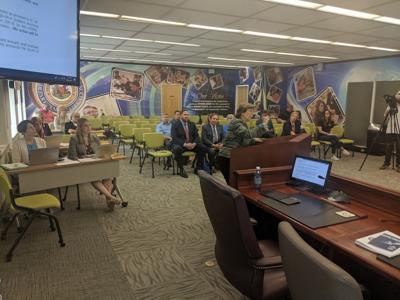If The Supreme Court Hears This Case, It Could Change The Face Of Public Education
This summer the US Supreme Court is expected to decide whether or not to hear Espinoza v. Montana Department of Revenue. If they hear the case, their decision will have huge repercussions for public education. To grasp why this case matters and why it's coming up now, there are two pieces of background you need to understand.
Tax Credit Scholarships
Tax credit scholarships are yet another variation on a school voucher program. Vouchers are the idea that a family picks the school they want their child to attend, and the state hands that child's "share" of education funding to that school. The problem is that when a family chooses a religious school (as is often the case), that can run afoul of the separation of church and state in general, and Blaine Amendmentlaws in particular. The Blaine Amendment was a failed Constitutional amendment that prohibited spending tax dollars on sectarian schools; thirty-eight states adopted it for their own constitutions. It's not an easy law to defend, because it rose out of nativist reaction to CONTINUE READING: If The Supreme Court Hears This Case, It Could Change The Face Of Public Education

















